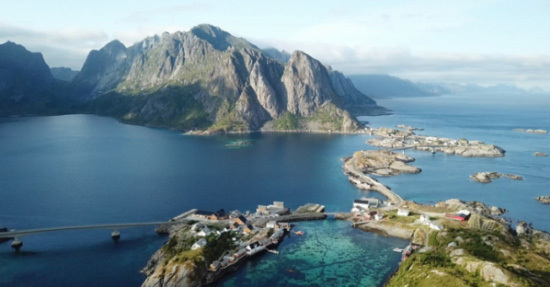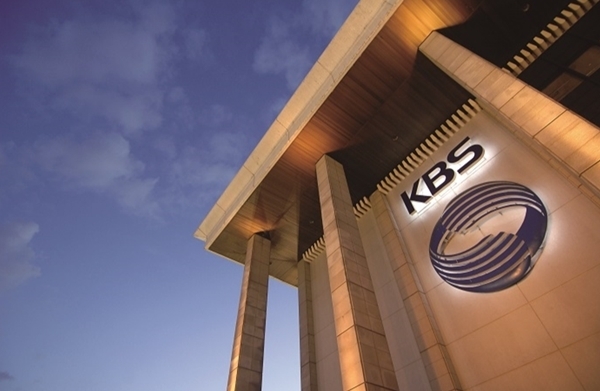
Travel to Norway's Trollunga, a country of vikings!
2019-09-29 14:11:11

From 'walking into the world', we enter Norway, a country with a short summer.
KBS1, "Walk Into the World," which airs on the 29th, visits Norway, a country of "fjords" created by nature.
Oslo, the capital, has traces of royal palaces and viking history and was home to the Norwegian playwright Henryk Ibsen.
From Norway's longest fjord, Sogne Fjord, to the Trolltunga, where the troll legend remains.
Take a trip into Norway's short summer, which has a variety of legends and natural environments.
Norway is a constitutional monarchy in Scandinavia's northwestern northern Europe, officially known as the Kingdom of Norway, and its coastline is 25148 km long.
Its area is 32,3802 km2, its population is 5,276,7689 (as of 2015) and its capital is Oslo.
The race is mostly German, Norwegian, and other Sami.
The language is Norwegian, and 94% of the entire population have established Gospel Lutheranism as a constitutional state, but in January 2017, it laid down its status as a state of religion.
Freedom of religion is recognized.
Norway is capable of arable only 3% of the country's land, so agricultural production is insignificant, but shipping and fishing are highly developed.
In addition, metal, steel, wood, paper, shipbuilding, and electricity industries, which use abundant hydroelectric power, are the main industries.
It is becoming.
In addition to neighboring Sweden and Denmark, it is a world-class welfare state.The National Social Security Plan, completed in 1971, provides a complete social security policy including free education, medical benefits, unemployment benefits, and old-age pensions.
It is given.
As of 2015, the gross domestic product was $ 53.1 billion and the per capita income was $ 81,749.
The identity is the cabinet responsibilities of the constitutional monarchy, and the parliament is a four-year unified variant (165 seats).
Major parties include Labor, Progressive, Conservative, Central, Democratic and Socialist Leftists.
The Norse, the Norwegian ancestor, formed several small countries in the south until the end of the eighth century.
By the turn of the ninth century, the Nordic overseas expansion, that is, the viking activities, continued into the 11th century.
In 872, the Unification Kingdom was founded by King Harald, and in the middle of the 11th century, the Norwegian king was the king of Denmark.
From the end of the 14th century to 1814, it was ruled by Denmark, and from 1814 to 1905, Sweden.
Independence from Sweden in 1905, today the royal family began.
During World War II, they were ruled by Germany.
Norway is a constitutional monarchy of Cabinet Responsibility, and its foreign policy is summarized as Pro-Western Neutrality and Northern European Cooperation.
In 1949, he transitioned from a neutral policy to a pro-Western policy, joining the NATO.
In 1952 he became a founding member of the Nordic Council.
In 1962 and 1967, he applied for membership of the European Community (EC) twice, but was defeated by France.
In November 1992, he tried to apply for EC again but failed.
In 1994, a referendum rejected the EU membership and did not sign a EU membership agreement.
In January 1991, King Harald V was the head of state.
Norway sent a mobile surgical field hospital during the Korean War.
The two countries established official diplomatic relations on March 2, 1959. Korea established a permanent diplomatic mission in Norway in December 1972, and a permanent embassy in Korea in Norway in 1980.
The two countries have signed the Agreement to Establish and Operate the Medical Center in March 1956, and the Patent and Trademark Protection Agreement in May 1965, the Visa Waiver Agreement in October 1969, and the Operation of Ships and Aircraft in International Transportation in October 1969.
Korea Mutual Exemption Agreement, Double Taxation Prevention Agreement in February 1973, Economic and Technical Cooperation Agreement in October 1982, Shipping Agreement in September 1984, Trade and Trade Agreement in January 1985, Economy in November 1999
The amendment of the Technology Industry Cooperation Agreement, the Fisheries Cooperation Agreement in January 2002, and the Korea-EFTA were signed in September 2006.


![[SBS Cool Neighborhood 2] MC Han Hye-jin finds her ideal type?!](https://kroamer.com/upload/trending/thumb-XjZ1726214517944_600x1350.jpg)

![[Live Happy Dream Lotto 6/45] - <Musical actor Kai, who shares through music and culture, appears as the golden hand of ‘Live Happy Dream Lotto 6/45’>](https://kroamer.com/upload/trending/20240912135642_0.png)



